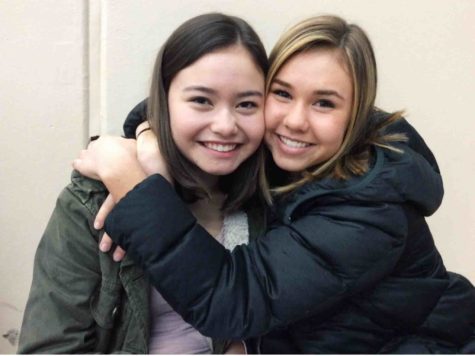Students Influenced by Parent Political Views
November 8, 2016
When a child turns 18 and becomes an adult, an abundance of responsibility comes with it, including a formation of their own political views and opinions. According to a recent Gallup Youth Survey, 71% of young adults say their social and political ideology is the same as their parents, which infers that kids are often influenced by their parent’s views. This may be because parents are more likely to voice their opinions which exposes children to forming similar beliefs. Political stances stem from a variety of influences, particularly from family and media which encompasses our daily lives. Education, religious beliefs, economic status, race and ethnicity also may influence children’s political views. Ms. Healy’s AP Government and Politics class stresses the importance of civics education because when citizens are knowledgable about politics, we have the ability to form political ideologies and a succinct political opinion and stance on issues.
Prep senior, Natalie Pedersen ’17 shares where her political views stem from: “I definitely get my conservative views from my sister- not social beliefs, but I believe big businesses are the primary way to support the economy. It sucks to admit it, but it’s true.” Pedersen does not support the Republican candidate as she believes he is an unfit for presidency, yet she considers herself a supporter of the Republican party. The 2016 election uniquely differs from previous elections due to its controversial presidential candidates, therefore it is predicted that there will be more independent voters and swing states due to the lack of support people’s usual political party. This controversial election is like a loose cannon- no one can control its eventual outcome.
In contrast, some students oppose their parent’s political views on large issues due to several factors such as age and upbringing. Bella Oishi ’17 shares her personal experience: “I have different views than my parents on both gun laws and abortion, which is probably because my parents are older and didn’t grow up in a liberal state like Seattle.” Oishi’s political views do not align with her parents’ because of her own formation of political opinions.
To address the main question of the article, children are exposed and made aware of their parent’s political stances and party affiliations by simply being around them, but it doesn’t mean that they fully agree with them.


